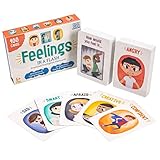Are you looking to raise strong, resilient children who can navigate life’s challenges with grit and emotional intelligence? As a parent, it’s natural to want to equip your child with the skills and tools they need to succeed in today’s world.
Fortunately, there are a number of strategies you can employ to foster your child’s growth mindset, teach emotional regulation, and build social skills.
One of the key ways to raise strong children is to encourage a growth mindset. This means focusing on effort and perseverance instead of innate abilities and talent. When children view challenges as opportunities to learn and grow, they are more likely to develop grit and resilience, which will serve them well throughout their lives.
By adopting a growth mindset yourself and modeling this approach to your child, you can help them develop a positive, can-do attitude that will serve them well in all areas of life.
Key Takeaways
- Fostering growth mindset, emotional regulation, and social skills in children involves modeling and encouraging positive behaviors, teaching accountability, and allowing natural consequences to build resilience and emotional intelligence.
- Teaching resilience and social skills involves allowing children to face natural consequences, teaching them how to handle disappointment and failure, and building social skills through playdates, team sports, and volunteering.
- To develop emotional intelligence and confidence, it is important to create safe spaces for expression, validate emotions, and practice mindfulness and relaxation techniques.
- Praising effort, breaking down larger goals into smaller ones, and reframing negative thoughts into positive ones can help children view challenges as opportunities to learn and grow, and encourage them to try new things and develop grit.
Foster a Growth Mindset
You need to start seeing challenges as opportunities to grow and learn if you want to foster a growth mindset. This mindset shift for growth and resilience is crucial in developing grit.
Instead of seeing failure as a setback, you need to view it as a chance to learn and improve. Encourage your children to take on challenges that stretch their abilities and praise them for their effort, not just their achievements. This will teach them to embrace challenges and not shy away from them.
Another strategy for developing grit is to teach your children to set achievable goals and work towards them. Help them break down larger goals into smaller, more manageable ones and celebrate each milestone they reach. This will help them build confidence and perseverance, which are essential traits for developing grit.
Remember, developing a growth mindset takes time and practice, but with consistent effort, you can help your children build the resilience they need to succeed.
Teach Emotional Regulation
When it comes to teaching emotional regulation, there are a few key points to keep in mind to help your child develop this important skill.
First, it’s important to help your child identify their emotions so they can learn to express and manage them effectively.
Additionally, providing safe spaces for expression and practicing mindfulness and relaxation techniques can also be incredibly helpful in promoting emotional regulation.
By focusing on these strategies, you can help your child develop the tools they need to navigate their emotions in a healthy and productive way.
Help Your Child Identify Their Emotions
Identifying and understanding their emotions is crucial for children’s development of grit and emotional intelligence – it helps them navigate difficult situations and communicate their feelings effectively. As a parent, you can support your child in this process by helping them recognize and label their emotions. Here are some tips to get started:
-
Model emotional awareness: Children learn by example, so make sure you’re aware of and express your own emotions in a healthy way.
-
Use age-appropriate language: Use simple words and phrases to help your child understand and identify their feelings.
-
Ask open-ended questions: Instead of assuming how your child feels, ask them how they’re feeling and encourage them to explore their emotions.
-
Validate their emotions: Let your child know that it’s okay to feel a range of emotions and that their feelings are valid. This will help them build self-esteem and confidence in their ability to manage their emotions.
By helping your child identify their emotions, you’re setting them up for success in their personal and social life. It’s an important step towards their development of grit and emotional intelligence, and it’ll help them build stronger relationships with others.
Provide Safe Spaces for Expression
Create a welcoming environment where your child feels comfortable expressing their emotions without fear of judgment or criticism. This is crucial in helping them develop emotional intelligence and grit. When children feel free to express themselves, they become more confident in their own emotions and better equipped to handle stress and challenges.
Creating safe spaces: benefits and challenges, strategies for effective communication
| Benefits | Challenges |
|---|---|
| Encourages open communication | Requires vulnerability |
| Builds trust and connection | May be uncomfortable or awkward at first |
| Provides a sense of security | Requires active listening and empathy |
To create a safe space for your child, start by actively listening to their thoughts and feelings. Avoid interrupting or trying to solve their problems for them. Instead, validate their emotions and offer support. It is also important to model healthy communication by expressing your own emotions and practicing active listening when they speak. Remember, creating a safe space may take time and effort, but the benefits are worth it in the long run.
Practice Mindfulness and Relaxation Techniques
Take a moment to breathe and relax with your child by practicing simple mindfulness techniques like deep breathing or visualization exercises.
Mindful parenting involves being present in the moment and fully engaged with your child. It means taking the time to slow down and focus on what’s happening right now, rather than worrying about the past or future.
Relaxation techniques for kids can help them manage stress and anxiety. By teaching your child to take deep breaths and visualize calming images, you can help them feel more centered and at peace.
You can also encourage your child to practice mindfulness on their own, whether it’s through meditation, yoga, or simply taking a few minutes each day to focus on their thoughts and emotions.
By making mindfulness and relaxation a regular part of your child’s routine, you can help them develop grit and emotional intelligence that will serve them well throughout their lives.
Encourage Independence
Encouraging independence in your child is crucial for their growth and development. One way to do this is by giving them opportunities to make choices. This can help them learn decision-making skills and build confidence in their own abilities.
Additionally, fostering responsibility and accountability is important for teaching them to take ownership of their actions. Finally, letting your child experience natural consequences can help them learn from their mistakes and develop problem-solving skills.
Give Your Child Opportunities to Make Choices
When your child has the chance to make decisions, they’ll develop independence and self-confidence. Encouraging autonomy in children is crucial to their emotional and mental development.
When you give your child opportunities to make choices, you allow them to navigate decision-making. This helps them understand the consequences of their actions and build resilience.
By giving your child a say in what they wear, what they eat, or even what activities they want to do, you’re empowering them to take control of their own lives. This helps them learn how to problem-solve and build their decision-making skills, which will benefit them throughout their lives.
It’s important to remember to guide them along the way and offer support when needed, but ultimately giving them the chance to make choices is a vital part of raising strong and independent children.
Foster Responsibility and Accountability
By fostering responsibility and accountability in your child, you’re giving them the tools to become self-sufficient individuals who can handle whatever comes their way.
Teaching accountability means allowing your child to experience the consequences of their actions, both good and bad. This means allowing them to face the music when they’ve done something wrong, but also celebrating their successes when they’ve made the right choices.
Fostering independence means giving your child the freedom to make decisions and act on their own. This doesn’t mean leaving them to their own devices completely, but rather giving them guidance and support as they learn to navigate the world.
By teaching your child to take responsibility for their actions and encouraging them to make their own choices, you’re helping them build a strong foundation that will serve them well throughout their lives.
Let Your Child Experience Natural Consequences
Now that you’ve learned about fostering responsibility and accountability in your child, let’s talk about natural consequences. It’s tempting to shield your child from disappointment or failure, but experiencing natural consequences can actually help build resilience and emotional intelligence.
Natural consequences are the outcome of a child’s actions or choices without parental interference. For example, if your child doesn’t study for a test, they may receive a lower grade.
While it’s important to provide guidance and support, allowing your child to face the natural consequences of their choices can teach them valuable life lessons. However, it’s important to weigh the pros and cons of natural consequences and ensure they are appropriate for your child’s age and development.
By teaching your child how to handle disappointment and failure, they can develop grit and resilience that will serve them well throughout their lives.
Build Social Skills
To raise strong children, it’s important to build social skills through activities like playdates, team sports, and volunteering.
Play based learning is a great way to help your child develop social skills. When children engage in imaginative play, they learn how to interact with others, resolve conflicts, and communicate effectively.
Positive reinforcement is also an important tool in building social skills. When your child shares a toy or helps a friend, praise their behavior and let them know how proud you are of them. This will encourage them to continue exhibiting positive social behaviors.
Team sports are another great way to help your child develop social skills. When they join a team, they learn how to work with others towards a common goal. They also learn how to communicate effectively, resolve conflicts, and handle disappointment.
Volunteering is yet another way to help your child build social skills. When they volunteer, they learn how to interact with people from different backgrounds and develop empathy towards others.
Encourage your child to get involved in activities that will help them develop strong social skills, and watch them grow into confident, well-rounded individuals.
Develop Resilience
One way you can help your little ones become more resilient is by encouraging them to try new things, even if they might fail at first. This will teach them to bounce back from setbacks and develop the mental fortitude needed to persevere through adversity. It’s important to remember that failure is a natural part of life, and it’s how we respond to those failures that truly matters.
There are many strategies and activities you can use to help your child develop resilience. One effective method is to teach them to reframe negative thoughts into positive ones. For example, if they fail a test, instead of saying "I’m not smart,"encourage them to say "I need to study harder next time."This will help them view setbacks as opportunities for growth and improvement rather than as failures.
Additionally, teaching your child to practice self-care and stress management techniques can help them better cope with difficult situations. By developing these skills early on, your child will be better equipped to handle the challenges that come their way throughout life.
Model Strong Behavior
Exemplifying robust conduct is crucial in fostering a resilient mindset in our little ones. As a parent, you’re the most influential person in your child’s life. Your behavior and attitudes set the tone for how they perceive and respond to challenges. Therefore, it’s essential to lead by example and model strong behavior that your child can emulate.
Here are three ways to do this:
-
Practice Positive Self-Talk: Use encouraging words and phrases when talking to yourself, especially when things get tough. Children learn from what they see and hear, so if you’re always putting yourself down or using negative talk, they may internalize those beliefs and think it’s normal.
-
Show Gratitude: Expressing gratitude for the things you have and the people in your life can help cultivate a positive mindset and build resilience. Be sure to acknowledge the good things that happen in your life, no matter how small they may seem.
-
Take Responsibility: When you make a mistake, admit it, and take responsibility for your actions. This teaches your child that it’s okay to make mistakes and that owning up to them is an important part of learning and growing.
In addition to modeling strong behavior, positive reinforcement is another effective way to foster resilience in your child. Praising them for their efforts and progress, instead of just their achievements, can help them see challenges as opportunities to learn and grow.
Remember, raising strong and resilient children is a process, and it starts with leading by example.
Frequently Asked Questions
What specific strategies can be used to teach emotional regulation to children?
If you want to teach emotional regulation to children, there are a few strategies you can try.
One effective technique is mindfulness, which can be taught through exercises like deep breathing and body scans. These techniques help children learn to recognize and regulate their emotions in the moment.
Another strategy is to practice emotional regulation exercises, such as identifying and labeling emotions or using positive self-talk to reframe negative thoughts. These exercises can help children develop the skills they need to manage their emotions in a healthy way.
By teaching children these skills early on, you can help them build a strong foundation for emotional intelligence and resilience.
How can parents balance encouraging independence with ensuring their child’s safety?
Finding a balance between freedom and safety can be daunting for parents. It’s important for children to develop independence, but it’s equally important to ensure their safety.
One way to teach risk management to kids is by starting with small steps. For example, encourage them to explore their environment, but set clear boundaries and guidelines. As they grow older, gradually give them more freedom and responsibility.
Teaching children about potential dangers and how to avoid them can empower them to make informed decisions. Ultimately, it’s up to parents to assess their child’s maturity level and make decisions based on their individual needs.
What are some effective ways to help children build social skills, especially during the pandemic?
To help your child build social skills during the pandemic, consider setting up virtual playdates with their friends. This way, they can still interact with others and practice their communication and socialization skills.
You can also encourage them to engage in social skills activities, such as role-playing scenarios or practicing active listening. These activities can help them learn how to communicate effectively, understand social cues, and develop empathy towards others.
It’s important to remember that building social skills takes time and patience, so continue to provide opportunities for your child to practice and grow, even in this challenging time.
How can parents help their children develop resilience in the face of adversity?
To help your children build resilience in the face of adversity, you can focus on fostering perseverance and determination in them. Encourage them to keep trying even when things get tough and celebrate their efforts even if they don’t always succeed.
Additionally, teaching children healthy coping mechanisms is crucial for managing stress and anxiety. You could help them develop relaxation techniques or encourage them to talk about their feelings.
By providing them with the tools to manage their emotions and overcome challenges, you can help your children develop the resilience they need to thrive in life.
Can you provide examples of how parents can model strong behavior to their children?
To model strong behavior for your children, it’s important to lead by example. Your actions and words have a huge impact on how your children perceive the world and themselves.
By demonstrating positive behaviors and attitudes, such as kindness, empathy, and perseverance, you can inspire your children to do the same. For example, if you encounter a difficult situation, show your children how to handle it with grace and resilience.
If you make a mistake, admit it and take responsibility for it. By modeling these behaviors, you can teach your children valuable life skills that will help them navigate challenges and build strong relationships.
Conclusion
So, you want to raise strong children who can navigate life’s challenges with grit and emotional intelligence? Great!
By fostering a growth mindset, teaching emotional regulation, encouraging independence, building social skills, developing resilience, and modeling strong behavior, you’re well on your way.
Remember, raising strong children is an ongoing process that requires patience, consistency, and a lot of love. But with these 13 strategies in your parenting toolbox, you can help your children develop the skills they need to thrive in a complex world.
So go ahead and put these tips into practice, and watch your children grow into resilient, confident, and emotionally intelligent individuals who can conquer anything life throws their way.

















































































































